this article was originally published at phaser.com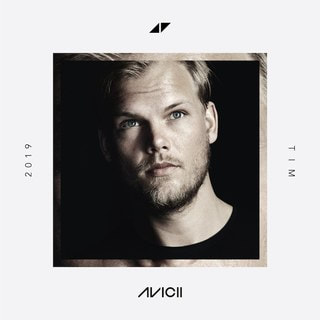
Posthumous albums are always a tricky business. It is so difficult to get the sentiment right, to make sure the intentions are clearly to honour the artist, and not just to achieve material gain. There is even a question as to whether this music should be released at all.
It is clear from reading interviews with the likes of Vargas & Lagola, Aloe Blacc, and Carl Falk, all of whom worked together to complete Avicii’s TIM, just how much they cared about their late Swedish superstar and friend. Songs from TIM are difficult to listen to now, they say, and the nature of the songs on the new album make it evident why this is so. It would be easy to read TIM as heavily foreshadowing the DJ’s passing. It is pervaded by darkness, with the first track, ‘Peace of Mind’, opening with the lyrics, Dear Society, Bad Reputation tells the tragic story of someone hiding their depression (“I don't want to be seen in this shape I'm in/I don't want you to see how depressed I've been”), while ‘SOS’ pleads for a lover to come save them from their insomnia (“I get robbed of all my sleep/As my thoughts begin to bleed”). Having said this, it’s strange reading through the lyrics of TIM, because on the basis of them alone it’s hard to view the album as anything but a suicide note from Avicii. However, listening to the album is an entirely different experience. The melodies are often tinged with sadness, and Carl Falk explains that Avicii would combine major and minor chords in the same line, the latter giving the songs a feeling of wistfulness. But there is an energy about each track, a sense that Avicii hadn’t lost his feeling of wonder and inspiration that shines through so prominently on his Stories hit, ‘The Nights’. ‘Never Leave Me’ is a boisterous, euphoric ode to a loved one, continuing the theme from SOS with the lyrics, She knows how I’m feeling, 'Heaven’, his collaboration with Chris Martin, is undoubtedly the standout track, and one that fans have been waiting for since it was teased in 2014. It is overwhelmingly uplifting and positive, and initially it seems a little odd that it is positioned as the second track on TIM, as it could have provided a concluding note of happiness as the album closer. But then you remember the most tragic aspect of this album - it’s a tribute to a story that didn’t end happily. The track that was chosen to finish TIM, ‘Fades Away’, epitomises how perfectly the sentiment of the album was judged. It references the ‘troubled times’ and the ‘trials to find somewhere we belong’ that have coloured the preceding eleven songs, but ends on a note of optimism, All I know is that with you I’m moving on 
This album carries such an emotional weight with it, that it was always going to be tough to find the balance between tones of positivity and regret. TIM finds this middle ground in a way that few other posthumous albums succeed in doing, and in my view, this is Avicii’s best work to date. His collaborators spoke with sadness about how it felt like he was on the brink of something massive musically, and how he would never get to execute this vision. TIM is as close as we can get to the perfect tribute, and the perfect reminder of how influential and talented Avicii was. I think it is easy to underestimate the impact Avicii has had on music, and people, around the world. The testimonial message board on his website is evidence of this, with tributes being posted from a whole range of nationalities - there are few artists whose music has touched so many people. We all remember when ‘Levels’ broke into the charts back in 2011, and essentially set the tempo for a decade that would be dominated by House/Pop fusions from EDM titans such as Calvin Harris, David Guetta, Martin Garrix and The Chainsmokers. Avicii’s crossovers into Folk, Rock and Country music broke down genre walls and introduced many new artists to fans that would not normally be interested in these kinds of music. On a more personal note, it seems apt that I’m writing this review in the lead-up to Father’s Day. Zac Brown Band is my father and I’s favourite band, and we always have one of their CDs loaded into the car stereo, ready for our road trip sing-a-longs. The paths of our music tastes don’t often meet, but this is a great instance where we can really share our love of music with one another. And the only reason I ever heard about Zac Brown Band, was because they were featured on the Avicii song ‘Broken Arrows’, and I thought hey, why not give them a try. Equally, I remember playing my dad Avicii’s ‘The Nights’, and he fell in love with the carpe diem spirit of the hook, He said, one day you’ll leave this world behind, Before any big event in my life, my dad will still text me the words, ‘Remember, these are the nights!’, just as a reminder to make the most of every moment. It seems a bit trivial to call an EDM song my favourite song, but because of the meaning associated with it, ‘The Nights’ is definitely up there for me. Avicii has had a much bigger impact on me that I would have ever imagined. While the album is heavily tinged with grief, TIM is also the perfect celebration of Avicii’s talent in creating music that resonates with his listeners. Despite the pained lyrics and the tragic context, TIM has at its heart the message Avicii always tried his best to convey - one of hope. Maxim Mower Get this amazing album on CD or Vinyl below
2 Comments
Originally published at phaser.comThere is a unique quality that only the upper, upper echelon of artists ever have. I’m not talking about the way their melodies are strung together, the way their charisma shines through on the track, or the way their lyrics shake you to your core. Of course, these are qualities that great artists possess. But only a handful of artists reach a point in their career where you don’t listen to see if the album or single is any good. You know it’s going to be good, so you just relax, and enjoy it. Surprisingly, not many of today’s musical icons seem to possess this quality. Drake, who keeps breaking record after record after record, even ones held by The Beatles, still brings out an album to hesitant ears. ‘Will it be as good as the last one?’, they ask. The same is true of Ariana Grande, Taylor Swift, Post Malone - most of today’s musical heavyweights still turn up with a sense of something to prove. Ed Sheeran literally has nothing to prove. Every album he’s ever brought out has been a smash hit, and every single he drops is draped with a VIP pass to Number One before anyone’s even listened to it. A significant number of your favourite songs were probably written by him, with his writing credits stretching all the way from The Weeknd to One Direction via Justin Bieber. And what’s more, he seems like the nicest guy to set foot in the music industry. He recently announced his upcoming No.6 Collaborations Project, following on from the No.5 that he released before he’d even been signed to a label. The two lead singles feature Justin Bieber, Chance the Rapper and PnB Rock, and are - surprise surprise - currently sitting on top of the charts. Like I said, Ed Sheeran is one of those artists you can’t help but sit back and appreciate. He said he had a bucket list of artists he really wanted to work with, so that’s what he’s going to do. And why not? He’s one of the most successful artists of all time, so why not tick off those collaborations he’s been wishing for. What do you have left to strive for when you’re the best? In Ed Sheeran’s book, it’s to simply enjoy yourself. This album should definitely be regarded as a complete love project, with Ed simply following his heart and working with the people he genuinely wants to work with, and not just names on a list handed to him by his record label. However, while we shouldn’t overanalyse it, it could also end up being one of his most interesting albums yet. The only slight criticism that people can possibly muster against Halifax’s most prized export, is that his music is at times a little derivative. Chance the Rapper and PnB Rock are certainly not features we could ever expect on a ‘standard’ Ed Sheeran album, so maybe this is his way of answering that final question as to how versatile he really is? To be honest, I really don’t think this has crossed his mind. No.6 looks set to simply be a fun, eclectic journey through a whole host of musical styles and genres, one that is enjoyed just as much by the artist as it is by the listener. Who can we expect on the guest-list? Ed has made no secret of his love for Hip Hop, with the ‘favourite song’ referenced in the go-to wedding track of this generation, ‘Perfect’, being revealed to be Future’s hard-hitting gangster anthem ‘March Madness’. He also worked with Future on Taylor Swift’s ‘End Game’, so an appearance from the Atlanta rapper can perhaps be presumed. Travis Scott is almost certainly on there too, with a collaboration between Scott and Sheeran leaking earlier this year, and judging by the lyrics, seems to be Track 7 on the project, called ‘Antisocial’. There will undoubtedly be some curveballs thrown at us, but all the more reason to look forward to No. 6’s release. This is a guy at the peak of his powers, nothing to prove, and just enjoying the artistic freedom his success has brought about. Is there any pressure on Ed Sheeran to deliver us another blockbusting, record-breaking smash hit of an album? 100% not. But are we expecting one? Absolutely. No. 6 Collaborations Project is out on July 12th, and is available to Pre-Add on all streaming platforms now. Maxim Mower Shorter version of this interview published at phaser.comExciting new R&B duo THEMXXNLIGHT, comprising of identical twins Akash and Krish Chandani, made waves in the music industry when Wiz Khalifa featured them on three tracks off his 2018 album, Rolling Papers 2. On 20th April, a few hours after the release of a new Wiz Khalifa album, which contains two more THEMXXNLIGHT features, I sat down to chat with the 22-year olds about what’s been an unforgettable year for them... Well, this is really the perfect time to talk to you guys, because you’ve pretty much come full circle! This time last year, Wiz Khalifa had you all over Rolling Papers 2, and then just today his latest project, Fly Times, Vol. 1: The Good Fly Young, drops and you have a big presence on it once again. How are you guys feeling after such an amazing year? “We’re feeling good, it’s pretty crazy. The feedback last time was similar, but they were mainly newer people that never knew about us. This time it was more like, ‘You did it once again!’” How was the process different this time around, working with Wiz a year on? “Well, the first time was through Sledgen [Taylor Gang’s in-house producer]. We had about eight songs, he probably just took three of them for the album. This time we actually went to Club Nightingale in LA, and then Wiz comes up to us and says, ‘Yo I need you to come to my house to record.’ We go to his house, and then we’re there for like twelve hours, we record like five songs, some with Chevy Woods. It was crazy because that was the first time in the studio with him. He was writing his verses in front of us. We just wrote something for the hooks pretty fast, just recorded it, both songs were on repeat the whole time. It was really different, a lot of the Taylor Gang were there, it felt like more of a family.” Could you clarify, because there’s been a lot of speculation online, are you signed to the Taylor Gang label, or are you still independent? “No, we’re not signed to Taylor Gang, but we are signed to Will Dzombak, who’s the CEO and founder of Taylor Gang Entertainment. He’s also Wiz’ manager” There’s a new EP, XX, on the way, as well as the full length album, MOOD. Any word on when we can expect those to drop? “XX is going to be first, we want to drop that in the next couple of months. Then MOOD will hopefully come out later in the year.” I wanted to ask you about the origin of your name, THEMXXNLIGHT, and the reasoning behind switching the O’s out for X’s. “So in Hindi our last name means ‘the moonlight’. And then we just felt spelling it with the X’s made it more mysterious, as well as being symbolic of us being twins.” A year before you secured the Rolling Papers 2 features, you were recording in your dorm room on the 2004 version of GarageBand. I wish it could make me sound like that! Have you upgraded your kit since then? “(laughing) No! It’s still hella old, a really, really old version of GarageBand. I think it’s the 2007 version.” You rejected offers to play basketball at MIT and California State, and instead ended up graduating from RPI in New York with an engineering degree. A lot of readers will be at that point in their lives where they are having to choose between what they’re being told they’re supposed to do, i.e. get a degree, get a Masters, get a secure job, etc., and their hobbies. What made you take that leap of faith and opt for music over engineering and sport? “That’s a good question! Somehow it worked out perfectly with the timing. At first, we imagined we’d play basketball for four years while doing our degrees. But within the first two or three months, we just didn’t feel a connection with the coach. It was a new coach, as the coach that recruited us had left. So we decided to drop from the team. Initially, we just made songs for fun, but by the tenth song, Wiz discovered us! That was two and a half years into making music. We graduated, then Rolling Papers 2 dropped in July. So it didn’t really involve any leap of faith before then, it was after that album released that our parents were like, ‘Ok, you can take some time away and focus on music’. It was a family decision, it wasn’t a rebellious, 'We’re running away from home’ kind of thing. Our parents said, ‘We’ll support you, and you guys can pursue this, and see how it goes’. You’ve spoken in the past about how your sound has been heavily influenced by one of your favourite artists, The Weeknd. What drew you to his style of R&B? “In high school, we were kind of shower singers. We always took instrumental lessons, but we were never trained vocally, and we still haven’t been, even though we do want to be. We were kind of singing around campus, and then we first heard ‘The Zone’ by The Weeknd one morning before getting dropped off at school. We just thought, ‘Yo, he sounds super unique, he sounds like an angel.’ He’s Ethiopian too, and his music actually has close tie-ins with Indian music, so immediately we felt very accustomed to his sound. We did a few The Weeknd covers and put them out on Soundcloud. They got shared by a couple of OVO and The Weeknd fan pages. It was crazy, it felt like our idols were slowly turning into our reality.” Speaking of Drake’s OVO label, you recently shared a photo with Roy Woods on your Instagram. What features can we expect from the upcoming EP and album? So we have one song with Chevy Woods, that’s going to be on his album in the summer, we can’t say what it’s called just yet. Then for our own projects, yeah, we have Roy Woods and Ye Ali. We've also worked with Megan Thee Stallion, she hit us up after the Wiz songs. She sent us a song which had two verses, but the hooks were blank. We recorded something, and she replied saying, ‘Yo, my mum loves it, my whole team loves it’. To be on her album would be a major honour, she’s an amazing female artist doing great things right now. Also TM88 is producing his album sometime this year, we have a song on there that’s co-produced by Sledgren. Also, Roy Woods has a full EP in the works. We have a collab project with him too that we’re excited about.” Wow, so a lot to look forward to! I wanted to talk to you about your Indian heritage, and how big a part that plays in your music. “It definitely plays a big part. Jay Sean inspired us a lot, it feels like the entire world still doesn’t know he’s British Indian. Obviously, NAV with XO, signed to The Weeknd, we would love to be a part of that. It’s clear that The Weeknd supports artists no matter what their culture is. Him putting on NAV was pretty crazy, and a great step for our community. Again, NAV paved the path for South Asian artists to really make it in genres other than Bollywood music.” How does it feel to be role models for minority groups pursuing careers in music, particularly Indian Americans, because apart from NAV, there aren’t many in the game at the moment? “There is a lot of pressure to please the community, because we can’t do a lot of the same things. Obviously there are a lot of drug influences in NAV’s music and videos, his background is more from Rexdale from Toronto. So it’s hard to find the balance for us. Based on feedback from the community, I think we can be good role models. Local high schoolers come up to us like, ‘Yo, you guys are legends, you’re the biggest inspiration for the Indian community’. We wish we’d have had an Indian rapper come to us and say, “Yo, you should pursue music’, then we would have been way more inspired from a younger age. What’s great as well is that people from all over India are also noticing us.” You mentioned how NAV has the freedom to make a lot of drug references in his music, and modern R&B as a genre definitely contains numerous themes of drug use, with The Weeknd, for example, also following this trend. Do you feel, as artists that are just coming into R&B and are perhaps still seen as outsiders, that there is a pressure on you to conform to these stereotypes of R&B music? “Yeah, good question. Not really, it’s kind of the theme of R&B to be on a druggy vibe, to put you in a high mood. We don’t feel pressure to do any of that stuff. Obviously singing about it makes sense because that’s the style of music, R&B is typically very sensual. If you want to do drugs, if doing drugs helps you in listening to that kind of music, then we’re not going to judge anyone for what they want to do. But there’s no pressure for us to partake in that. Our music is not heavily drug themed, there are very, very few references to drug abuse. We focus more on passion, and love story type stuff. There are some references, because like I said, it comes with the territory, but generally that’s not what we aim to sing about.” Finally, for my blog I have this concept called Self-Help Songs, where I pick certain lyrics that people can learn something from, and I thought it could be cool to ask you about some lyrics from one of your newest Wiz features, ‘All For You’. Your chorus reads, “If you need someone to treat you right/If you need someone to talk to, call me/I’ll do anything you like/I wanna do it all for, all for, all for you”. What was the inspiration behind these lines? “Yeah, so it’s kind of the beat that carried it. We heard it and it had that really reminiscing, slow jam R&B vibe. But we could also imagine Wiz going crazy hard on it. We thought we could make something that pleases both R&B and Rap fans. In terms of what inspired the lyrics, we came up with this story. We were kind of imaging a scenario where one of us was with a girl, maybe taking her around a shopping mall, treating her right kind of thing. Basically it means using your success in the music industry, to give back to your girl, and being unselfish, like ‘Everything I do, I’ll do for you’. Both songs are kind of about greatness, and giving back, and reminiscing.” Interview by Maxim Mower Hear THEMXXNLIGHT on Wiz Khalifa’s latest album, Fly Times, Vol.1: The Good Fly Young, and stream their brand new single, ‘Good Things’. After the immense success of the Migos’ debut album, Culture, and their smash hit 'Bad and Boujee’, you would have thought they’d earned the right to be taken seriously. But they are talked of as something of a novelty, and a lot of people claim their popularity is merely the result of the ease with which they are turned into memes.
This seems a tad unfair, but regardless, the decision for each of the trio to release solo projects this year has provided Quavo, Takeoff and Offset, respectively, with the opportunity to show why they should be held in higher esteem, both collectively and as individual artists. However, Quavo’s solo album was disappointing, lacking the vocal innovation and melody that has made him such a sought-after feature, despite containing a handful of highlights. Takeoff’s project came and went without so much as a ripple in the unusually calm waters of the charts. So the onus was on Offset to redeem the rap group, and prevent critics from scratching their heads and wondering why they ever thought these solo experiments would be worth the risk. Did he deliver? Well, he definitely succeeds in distancing himself from the typical style of the Migos, as well as the standard subject matter. There seems less self-assurance in Offset’s voice, as for the first time on a Migos album the loud posturing is replaced by hushed honesty. The title track, ‘Father of 4’, sets the mood for the rest of the project. After a very philosophical and perhaps overly poetic intro from Big Rube, Offset spares no time getting on topic - “I was 17 years old when I had you/ Trying to find my soul when I had you”. He names all his children, and unravels the layers of his relationship with them, opening up to the listener about how he perceives his identity as a father. While other rappers have often cited their offspring as their central motivation, these tributes can often sound trite, as the expression of love is enshrouded in trivial lyrics about Gucci belts and diamond chains. Offset makes it clear this is not going to be one of those albums, with the artist being incredibly candid, often painfully so, about his personal life throughout Father of 4. ‘North Star’ is an emotional wade through Offset’s mental struggles, with the funk-oriented Cee-Lo Green seeming an odd choice at first, but ends up combining well for an outro that adds sentiment to the track. ‘After Dark’ is not catchy at all, but the chorus is uttered so statically that it gives you time to chew over each line, something unusual for Migos tracks, where the verses rattle along at such a speed that there is no time to think, or to stop and digest what is actually being said (albeit it normally not very much). ‘After Dark’ epitomises Offset’s move away from the typical tone and themes of his group. He balances the melodies well with the quick fire bars that he has become renowned for, but Migos fanatics will inevitably ask where the celebratory anthems and triplet-fuelled explosiveness has gone. The attempts to satisfy this expectation are there, with ‘On Fleek’, ‘Clout’ and ‘Legacy’ all threatening as firecrackers, but ultimately lacking the necessary spark. On the whole, though, Father of 4 is a pleasantly surprising listen, with Offset removing his Saint Laurent mask and baring his soul to the world, spinning the Migos blueprint on its head. When he rose to stardom and married Cardi B, Offset became one of the golden boys of Hip Hop. On Father of 4, he walks with the 24-carat necklace dangling as a heavy weight on his shoulders, rather than a symbol of his success. Maxim Mower 'We are never getting back together' - Was Taylor Swift right to break up with streaming services?3/3/2019 Hey Guys! This is a Guest Post, written by my super-talented best friend, David Dawson, who's in his final year studying Music at University (so he probably has more of a right to judge music than I do!). Hope you like his piece! Who remembers the good old days when you would log onto iTunes and buy a song for 99p, or when you’d rip all your cd music onto your Sony Ericsson with the slide up screen to then sit on the back of the bus eagerly Bluetoothing them all to your mates? To say this was still happening less than ten years ago is pretty crazy, especially in comparison with how most of us consume music these days. I am one of the millions of people who pay monthly for the pleasure of accessing all of my favourite tracks in one place and in one convenient app. I imagine that most of the people who read this will have some use or experience of Apple Music, Spotify or any other streaming service, whether it’s using seven different email addresses to push your 30-day trial to the max, having a free membership at the sacrifice of adverts or paying a full subscription. My question is, should we? Obviously, as a consumer the benefits seem logical, why wouldn’t we want all the music we could think of, and more, all playable from your tinny mobile speaker? Streaming services allow us to access music in a way we have never experienced before, giving us the chance to not only enjoy the same tunes we know and love, but to find new music quicker than ever. Obscure music for me used to mean Track 10 from an album only known for the title song, but with streaming services you can pick yourself a band no one has heard of and shove it in the faces of your mates hoping to get discovery rights - should they hit fame. So, what is my big issue with streaming? Well, it’s not exactly a secret, thanks to Taylor Swift and Jay-Z, that artists don’t get much money from streams. In fact, one single stream normally amounts to a fraction of a fraction of a penny being paid out to the artist. Of that tiny pie, the record label eats most of the good stuff, leaving only the accidental fruit seed and that little bit that got dropped on the floor for the artists. A look into the proper figures would tell us that labels actually do pretty well from our extensive use of streaming, with the three major labels making a combined $6.93 billion in 2018, and that this is up ten per cent from the figure in 2017 and will probably rise again for 2019. This for me causes an issue with our perception, as we all know a tiny piece of a near $7 billion dollar-sized pie is actually pretty big, but does that make it fair? When Taylor Swift decided to effectively boycott streaming services, removing her music initially in 2012 and refusing to release her new album at the time, Red, on their services, I, as I imagine many people did, scoffed at the news. The thought of someone like Taylor Swift complaining about how much she was being paid seemed almost laughable to me, and I certainly wasn’t going to make a wooden sign and start marching in her support. But should we have all done more to get on her side? Yes, Taylor Swift doesn’t exactly need more money, but the reality is that streaming services don’t get artists the money they deserve for the hard work they put into their music, and this is what she was protesting. Whatever job you do, and however much you earn, I’d say it’s fair for anyone to ask for an acceptable amount of payment. Of course, Taylor was brought around once some terms were put in place, but the picture hasn’t much changed since. The issue for me seems to be that streaming services have the monopoly. Even for a huge artist, if your music is not on all the major streaming sites it is a fact that the exposure you and your music gains will be smaller, and as streaming counts for charts these days, your chances of hitting higher in the Top 40 is significantly reduced. This still may be hard for most people to relate to, so the issue I would raise, and the main issue as far as I am concerned, is how this affects smaller artists and new music. Being a user of Spotify I know how great it is for discovering new music, as is Apple Music and other streaming services. I can easily find playlists to match my exact needs or mood, or that fit into a particular genre that I enjoy, and within these playlists, while I may find some of my old favourites there is almost always one or two new tunes that really catch my attention. Therefore, for an artist that is just starting out, or even on the way up, is not being on the popular streaming services really an option? The priority for these artists at this stage is obviously to gain as much exposure as they possibly can and to find an audience for their music, which streaming allows. However, artists like this often don’t have huge backings of record labels and to continue recording music and trying to expand revenue is a requirement. When we consider these artists, instead of millionaire popstars, we start to realise how unfair payments for music are a big issue, which is why I questioned whether we should have offered more support, or at least approval, when Swift tried to make a point. Similarly to how Swift threw her own weight around to make some progress, other larger artists are actually able to use their popularity and streaming figures to negotiate more favourable terms for themselves. However, this is a luxury that smaller artists do not enjoy, meaning that while established and rich artists may be able to make some extra money, those with smaller followings and less financial backing are only able to make the minimum, supporting that age old saying about the rich getting richer whilst the poor get poorer. Jay-Z was another big name who recognised the injustice, setting up his own streaming site, Tidal, and moving all his music across. Despite Tidal paying more, it is still significantly small amounts per stream, which still means that artists would have to get thousands of listeners to make any significant amount, which for most artists starting out is not a reality. The ultimate point that I am trying to make, therefore, is that as much as we use or enjoy streaming services, maybe we should have been marching with Taylor and supporting the progress she was trying to make, and that now we should still be scrutinising these big streaming services and trying to generate change. As was the problem with Swift’s actions, it is hard to get people to empathise or sympathise with a millionaire expecting more money. But I would emphasise to people that no matter what their vocation or salary, if they were not paid a fair amount for their honest labour, they too would feel a lack of justice, and that when we consider the smaller artists attempting to make a career for themselves, is it fair that they have to accept tiny payments in exchange for their exposure and advancement? After all, there would be little point in having a great platform to enjoy music on, if there was no new music for us to enjoy. David Dawson There was a time when an offer to perform on the Grammys stage was one of the most coveted honours in music, where if the Grammys adjudicators deemed you an artist worthy of showcasing, then you’d made it. It was the seal of approval most musicians pined for.
But today’s awards ceremony is very different to how it once was. Two of the biggest artists of the day, Kendrick Lamar and Drake, both rejected opportunities to perform; Song of the Year and Music Video of the Year winner Childish Gambino didn’t turn up; and neither did the industry’s power couple Jay-Z and Beyoncé. Notably, most of the artists that continually turn their noses up at the Grammys operate in the Hip Hop arena. This is partly because the genre has quickly become the biggest in the US, with Nielsen Music’s report suggesting 8 out of the 10 most streamed artists in the world are rappers. However, this surge has arguably not been mirrored by the genre’s award tallies, with the Grammys coming under fire for its problem acknowledging artists of colour, as well as consistently under-representing women. Clear attempts were made this year to shine the spotlight on female artists, with Kacey Musgraves winning Best Album and Dua Lipa winning Best New Artist. But Hip Hop continued its troubled relationship with the industry’s most prestigious awards ceremony, with the biggest incident of the night arriving during Drake’s acceptance speech for Best Song. Instead of thanking the adjudicators (whoever those mysterious people are) for choosing ‘God’s Plan’ as the winner, he criticised the very existence of the Grammys. He addressed the crowd, “I want to let you know we're playing in an opinion-based sport, not a factual-based sport”, before elaborating, “Look, if there's people who have regular jobs who are coming out in the rain, in the snow, spending their hard earned money to buy tickets to come to your shows, you don't need this right here. I promise you, you already won.” Half of this speech was ‘accidentally’ cut off, so that viewers didn’t get to see it, but it seems like Drake had a point. Although it may appear a little paradoxical for a music critic to claim that we are wrong to judge music, I think the Canadian rapper is right in that we cannot really take an objective approach, and the eclecticism that expresses itself through people’s music tastes highlights this. You’d be hard-pressed to sit a Heavy Metal fanatic opposite a Jazz connoisseur and get them to agree as to which is the ‘better’ form of art. By the same token, it seems futile for some unbiased umpire to conclude Jazz as superior to Heavy Metal, or vice versa. They’re just different, not necessarily better or worse. You could argue that the charts are this independent referee, so to speak, as the more popular a song is, the better it must be. But how come critics so frequently give an album a very bleak review, yet it subsequently leaps to number one in the charts? Whose opinion should we trust more? We can only really talk in terms of preference, rather than quality, and this is the notion Drake was trying to convey. Can we compare Travis Scott’s Sicko Mode to Mozart’s 21st Symphony? Can we rate Tracey Emin’s ‘Unmade Bed’ higher or lower than Dali’s ‘Lobster Telephone’? Can we even judge songs within the same genre to be better than others, or is it always going to be a matter of personal palate? Some Hip Hop heads might be obsessed with the Migos, while others will complain they are garbage compared to the old guard of 2pac and the Notorious B.I.G. So really, who are the Grammys to say that Childish Gambino had a ‘better’ song than Lady Gaga, or Shawn Mendes? How can they profess such insight as to be able to do what nobody else seems able to do, and rank music, not only within genres, but across genres. Perhaps Drake summed it up perfectly in saying, "This is a business where sometimes it's up to a bunch of people who might not understand what a mixed race kid from Canada has to say or a fly Spanish girl from New York or anybody else, or a brother from Houston right there, my brother Travis [Scott]. But my point is you've already won if you have people singing your songs word for word, if you're a hero in your hometown.” Music is made for the public and for the fans, it’s not aimed at critics or Grammys adjudicators. By the same token, for me to talk of ‘good music’, it should really just be interchangeable with ‘music that I like’. This isn’t a fact-based sport, it’s an opinion-based one - your playlist is your pantheon of Grammy winners. So I guess that leaves me awarding Travis Scott the Best Metal Performance, Drake the Best New Age Album, and Future the Best Jazz Vocal Album. Who knew Hip Hop was so versatile? Yours sincerely, but not too seriously, Maxim Mower Avicii, 'The Nights'
“He said, one day you'll leave this world behind So live a life you will remember My father told me when I was just a child These are the nights that never die” I think it’s a testament to the selflessness that pervades the late Swedish DJ’s music, that he wove a constant theme of ‘Carpe Dium’ throughout his catalogue, despite clearly struggling to overcome his own struggles to find happiness. Maybe this is what motivated him so fervently to provide his listeners with an approach to help them find their own joy. Either way, Avicii’s ‘The Nights’ is the epitome of what my Self-Help Songs series is all about. “One day my father he told me Son, don't let it slip away He took me in his arms, I heard him say When you get older Your wild heart will live for younger days Think of me if ever you're afraid” It may sound corny to call an EDM track my favourite song of all time, especially considering my overwhelming love for Hip Hop, but ‘The Nights’ is a definite contender for my personal top spot. Its tale of a father telling his son not to waste his life and to chase his dreams reminds me of the mentality my dad has always tried to instil in me. I remember playing this song to him a few years back, and he immediately fell in love with it too - despite in no way being a fan of Electronic Dance Music. The music video only serves to drive home the valuable message, with professional life-liver Rory Kramer giving us a snapshot into the rip-roaring adventures he has always been inspired to embark on. My dad still sends me texts at University saying ‘Remember - these are the Nights!’, (admittedly usually accompanied by a few random emojis!). But sometimes I feel like I do need this reminder to try and make the most of this moment. It seems adults spend half their time telling us that ‘Oh, life does go by quickly, and before you know it you’ll be old and wishing you’d made more of your youth’. Ugh, whatever, is the standard response, occasionally followed by a roll of the eyes. It’s true though, and I think we all know this deep down. I mean, it feels like I only started my Oxford journey last month, but already I’m going to Halfway Hall, signifying I’ve officially made it through half of my three year degree. Time does fly by, and one day we will leave this world behind, despite my childhood attempts to reject this notion and believe in the possibility of immortality (part of me is still tempted to go and freeze myself for a few centuries until a cure for death has been made, but I guess I’ll need to commit a little more than part of myself in order for that to work!). I’m as guilty as anyone of looking forward all the time, planning ahead, thinking of where I want to be in five, ten years. I think this is partly a symptom of our education system, and how there is always an objective, a goal we are preparing for, whether this be GCSEs, A-Levels, Prelims or Finals, and we believe that once we get past the next target we can start living as we want to. But life is one long string of targets, and I feel like it’s easy to focus so hard on that next deadline, that upcoming holiday, and that job promotion that’s a couple of years off, that you eventually find that you’ve wished years of your life away. So following on from my last Self-Help Songs post on Zac Brown Band, I think that while it’s important and inspiring to set goals, at the same time we have to remember to just appreciate this night, this day, this moment, without thinking of what comes next. It’s that cheesy old slogan that’s now emblazoned across every iPhone case, laptop screensaver and River Island t shirt - 'Carpe Dium'. It’s a painfully overused cliche - but at the same time, it’s undoubtedly true. Because in reality, we only ever experience life in the present, so I guess you could say that the future never arrives. So why put your emphasis on something uncertain, when you could be putting your energy into making the most of the what is right in front of you? After all, these are ‘The Nights’ (unless you’re in Australia, in which case - these are ‘The Days’!) “When thunderclouds start pouring down Light a fire they can't put out Carve your name into those shining stars” How to Live Without Regrets #1 - Seize the Day Maxim Mower https://genius.com/Avicii-the-nights-lyrics How to De-Stress #1 - Slow Down So you’ve heard it a million times. Yes, ok, we get it. The world we live in moves at too fast a pace. But quite frankly, what are we supposed to do about it. I’ve got an essay in for tomorrow, an internship application to sort out and lots of baying blog followers to please with a steady flow of posts. Well, maybe the last one was a bit of an exaggeration, but still, it seems easy to just tell people they’ve got too much going on without providing an actual solution to it. I feel like this song gets to the crux of the matter in a really simple, convincing way. ‘No Hurry’ is about (spoiler alert) slowing down, and just taking a moment to breathe. Because in this day and age, we do have a million things to think about. Certainly at University, any moment you take off essay reading, or essay writing, or essay checking (pfft, like anyone actually does that), you feel kind of guilty for not spending it on work. But this shouldn’t be how we feel, life isn’t just about work. It’s just as important to stop and chill every once in a while, otherwise the bundle of impending deadlines and doom pile up in your mind until you reach breaking point. Personally, my mind often feels like its moving too fast for me to keep up, so that when I’m sat working on my CV I’m thinking that I should be working on my degree, but when I’m writing an essay I’m thinking I should be working on my CV. This may seem like the least relevant question I could possibly ask, given that over the past five years Hip Hop has surged up the charts to become the leading genre across all streaming platforms. It is currently in the purplest of patches, with Drake and Kendrick Lamar now consistently leading the nominations across the biggest award shows.
However, the increase in rattling hi-hats and booming bass streaming down our headphones is partly due to Hip Hop’s malleability as a genre. Pop songs frequently feature a verse from a rapper, and have done since the early 2000s, while the introduction of Auto-Tune has led numerous Hip Hop artists to lend their vocals or a production credit to Alternative, Electronic, Rock and World songs. But is this genre blurring specific only to Hip Hop, or is this something that can be seen across all genres? It is certainly not exclusively applicable to Hip Hop, with plenty of novel cross genre collaborations hitting the top of the charts, such as Country and EDM. But undoubtedly the most prominent of these, as well as perhaps the most unusual, involve Hip Hop. Who would have foreseen that Essex’s Charlie-Charmer Olly Murs would come together with West Coast gangster rapper Snoop Dogg on their recent hit Moves? Or that Stevie Wonder would agree to play the flute on Travis Scott’s Stop Trying to Be God? A lot of these partnerships can be put down to record label manoeuvring, with the two artists often recording their pieces separately and never actually meeting. Certainly in the case of more commercial pop hits, this seems to nearly always be the case. However, Hip Hop seems to spark unlikely but genuine friendships. Elton John, for example, is a self-professed Young Thug superfan, combining forces with the Atlanta warbler on his recent High remix of John’s Rocket Man. Stevie Wonder and Travis Scott did actually meet, as proven in a very staged ‘Oh look who I bumped into’ photo on the latter’s Instagram. But they met, nonetheless. The success of James Blake’s new album, Assume Form, was partly propelled by features from Hip Hop super-producer Metro Boomin and the aforementioned Travis Scott. Blake’s style tiptoes around the fringes of alternative and electronic music, his sound distinguishable by its contrasting ambient warmth and falsetto chills. Scott wades into Blake’s sonic universe with ease, providing a clear, downcast anchor in amongst the whirling, euphonic fog surrounding him. Personally, I think Blake often lacks this lucidity to counter the wavering, fleeting melodies that permeate his other works, and perhaps this is why Hip Hop comes into its element when complimenting an artist from another genre. Its directness and ferocity often lights up a track that is otherwise in need of a lift. Tranquil synths and dreamy pop vocals are the taste of the day, with Ariana Grande, Swae Lee, Halsey and newcomer Summer Walker all perpetuating this style. This works brilliantly on isolated tracks and brief chart-toppers, but this ambience can often struggle, in my view, to sustain the listener’s interest over an entire album. It works if you are on the right vibe, but the truth is you rarely stay in the mood for the hour it takes to digest an album of this ilk. A rap verse keeps the listener guessing, and gives hardcore fans of the featured artist a reason to stick with the song through to the end. So now that Hip Hop has clambered to the top of the musical pedestal, albeit partly through a few helpful leg-ups from cross-genre features and the odd guest verse, can we expect it to stay there? Or will it be usurped by another mercenary genre leapfrogging its way to the top? Perhaps Country stars Florida Georgia Line’s collaboration with Pop’s Bebe Rexha, and Zac Brown Band’s venture into EDM with the late Avicii, are precursors to a Top 40 dominated by Nashville? In reality, I think Hip Hop is here to stay for the next couple of years. Young Thug, Travis Scott and, most recently, Future, have all honed a sound that perfectly combines the spacey with the hard-hitting and fierce. If they can just add a little more depth to their lyrics, I think their armoury will be very difficult to defeat. But nonetheless, I’ll keep my checked shirt and cowboy hat at the ready, just in case… Originally published at www.phasermagazine.com An earlier version of this article was published at https://phasermagazine.com/main/2019/1/9/why-hip-hop-needs-to-change-its-approach-to-sexual-assault The recent furore surrounding Hot 97 radio host Ebro Darden’s mild interrogation of Kodak Black, a rapper currently awaiting trial for a sexual assault case, is worrying to say the least. After the #MeToo movement’s attempts to cleanse Hollywood, one might have thought Darden’s stance would have been championed for being ‘woke’ in an era where the US President can (allegedly) pay off a porn star to keep quiet and still stand in front of his supporters like some kind of toupee-wearing god.
But no, if anything the response to the Kodak incident was overwhelmingly hostile towards Darden, with commentators criticising him for making the rapper feel ‘uncomfortable’. Ironic, considering he is being charged with doing things to someone which will have made them feel just a tad worse than ‘uncomfortable’. I get the whole innocent until proven guilty approach, because it is important to remember that the charges may indeed be shown to be false, and the media are right to avoid jumping the gun and producing another Cliff Richard smear debacle. But there is a difference between suspending judgment, and turning in the opposite direction and assuming that the accuser is lying. Chance the Rapper recently spoke out saying that he regretted working with R. Kelly, who has been the subject of a recent documentary reaffirming numerous allegations of sexual assault involving women and teenage girls. Chance admitted that he ignored the accusations because of the R&B singer’s celebrity, and had presumed the women were merely seeking publicity. It is just as dangerous to adopt this kind of attitude, as it is to adopt the mentality that Kodak Black is definitely guilty. Of course, when celebrities are involved it has been known for sexual assault allegations to have been proven false, and submitted merely with the intention of getting in the papers. However, the truth is that this is usually not the case. The FBI puts the number of ‘unfounded’ rapes, i.e. those found to be false, at 8%. When you consider that the US Bureau of Justice estimates that only 35% of all sexual assaults are actually reported to the police, this figure becomes even more significant. Some cases will be submitted purely for publicity, and there are no statistics specifically in relation to sexual assault charges involving celebrities. But at the end of the day these rappers and singers are role models to a tremendous amount of people, so we surely have to treat their allegations with only the same amount of scepticism as we would a case involving the average Joe. Otherwise, if our immediate reaction to a sexual assault charge against a celebrity is ‘They’re probably lying’, then this will inevitably translate into our treatment of normal cases. Ebro is 100% right for not merely sweeping the Kodak issue under the carpet. People should be aware that the man being interviewed is being tried for sexual assault, rather than simply ignoring the case and promoting the rapper’s new album like everything is hunky dory. People tend to get on their high horses at this point in the debate, arguing that if we refrain from listening to certain artists simply because of their private lives, then we are on a slippery slope to censoring art in general. They claim art should be treated as amoral. But it is not about censoring music, it is about giving people who may be tempted to listen to Kodak Black the relevant information, which they can then choose to use as they wish. Many may be aware of his trial, but don’t believe music and the artist should be linked so concretely, with the credited artist not even being the main contributor to many songs that will have involved writing teams, producers, mixers, etc. Others, though, will undoubtedly choose to avoid buying a record that is linked so heavily with a potential sexual offender. The problem runs deeper when the artist has already been shown to be guilty. My friend recently recommended an Xxxtentacion song to me, saying how beautiful the music is. But she wasn’t aware of his history of quite horrific domestic abuse, involving battery of a pregnant woman and attempted strangulation, and when she was made aware of this, she was shocked, and felt guilty for listening to his music. But the guilt should not lie with the listeners, for everyone is of course entitled to endorse whichever music they please. The issue is that she wasn’t even aware of his history, due to the overwhelmingly positive publicity the rapper has received after his passing. It is virtually impossible to listen to an Apple Music or Spotify Hip Hop playlist without almost accidentally listening to Xxxtentacion or 6ix9ine, the former of whom has been recorded admitting to his crimes, and the latter of whom has already been charged for sexual misconduct. Morality is treated as such a malleable concept in the modern era, with the increasing popularity of cultural relativism as a philosophical worldview, and I am not suggesting we start telling people not to listen to certain music and ranking some songs as morally superior to others. The point is that sexual crimes should not be glossed over simply because a rapper is popular. Hip Hop needs its own #MeToo movement. For too long casual sexism has been an inherent part of rap music, with people like myself ignoring it with the justification that a lot of rap lyrics are purely fictional, written with the intention of fulfilling the gang-member, drug-dealer stereotype. But while Film is clearly making the effort to give women the respect they deserve, Hip Hop is flailing way behind. People should be free to listen to these artists if they choose to. But in my view, their music should not be actively endorsed in the way it has been, simply to increase revenue for streaming services and record labels, in the process ignoring their sexual misconduct cases. At the moment, it is harder to avoid these artists than it is to listen to their music. Over the past couple of years Hip Hop has become a burgeoning feature in the charts, and I am as happy as anyone about this. However, it is crucial that the flourishing of this overwhelmingly male-dominated genre is not accompanied by the undoing of the positive steps made by numerous powerful female chart presences, such as Ariana Grande, Taylor Swift, Little Mix, and Jess Glynne to name a few. The Hot 97 backlash is the last thing that Hip Hop needs. The genre needs to start showing more respect to victims of sexual assault, just as Ebro was trying to do in his Kodak interview. If you ask me, Hip Hop needs to start showing more respect to women in general - we need fewer songs objectifying women, and more songs made in the ilk of Lil Yachty’s ‘Worth It’, for example, which subverts this culture in his tackling of the issue of body image: “I love you for who you are, God don't mess up at all, Even when he make us with flaws” This attitude should be standard, rather than the exception. Maxim Mower |
AuthorHello! I'm currently studying Philosophy & Theology at Oxford University, UK. Having always loved writing and music in equal measure, and having always hated decision-making, I figured hey, why do I need to choose between the two? Archives
May 2020
Categories
All
|
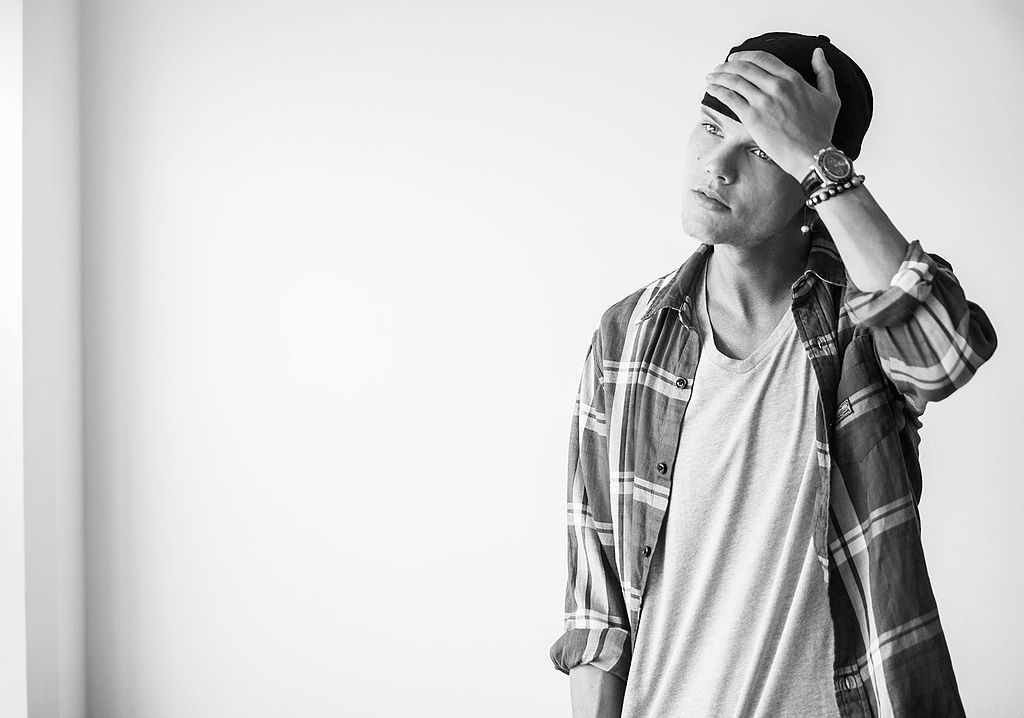
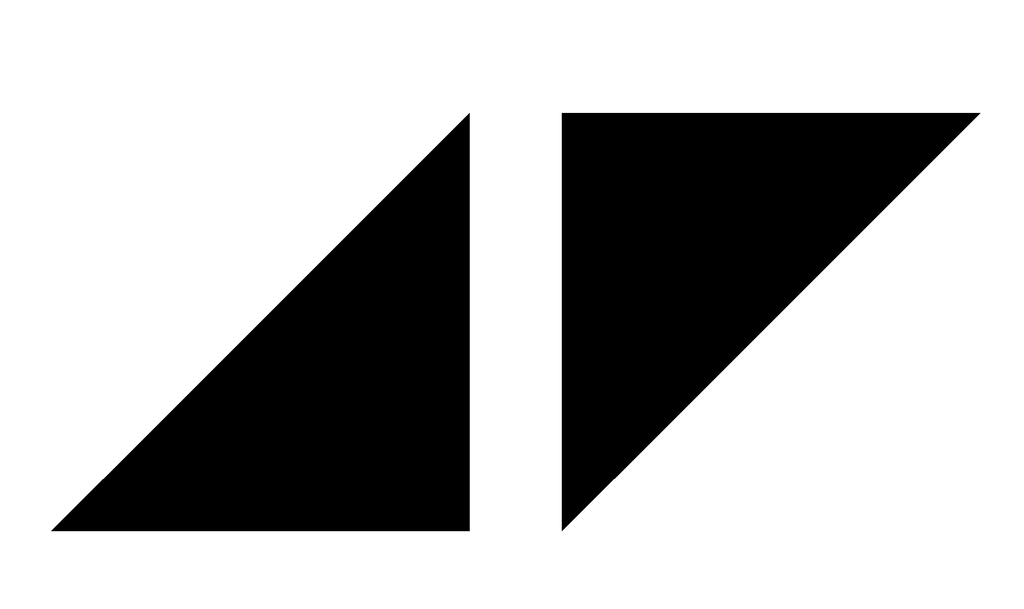
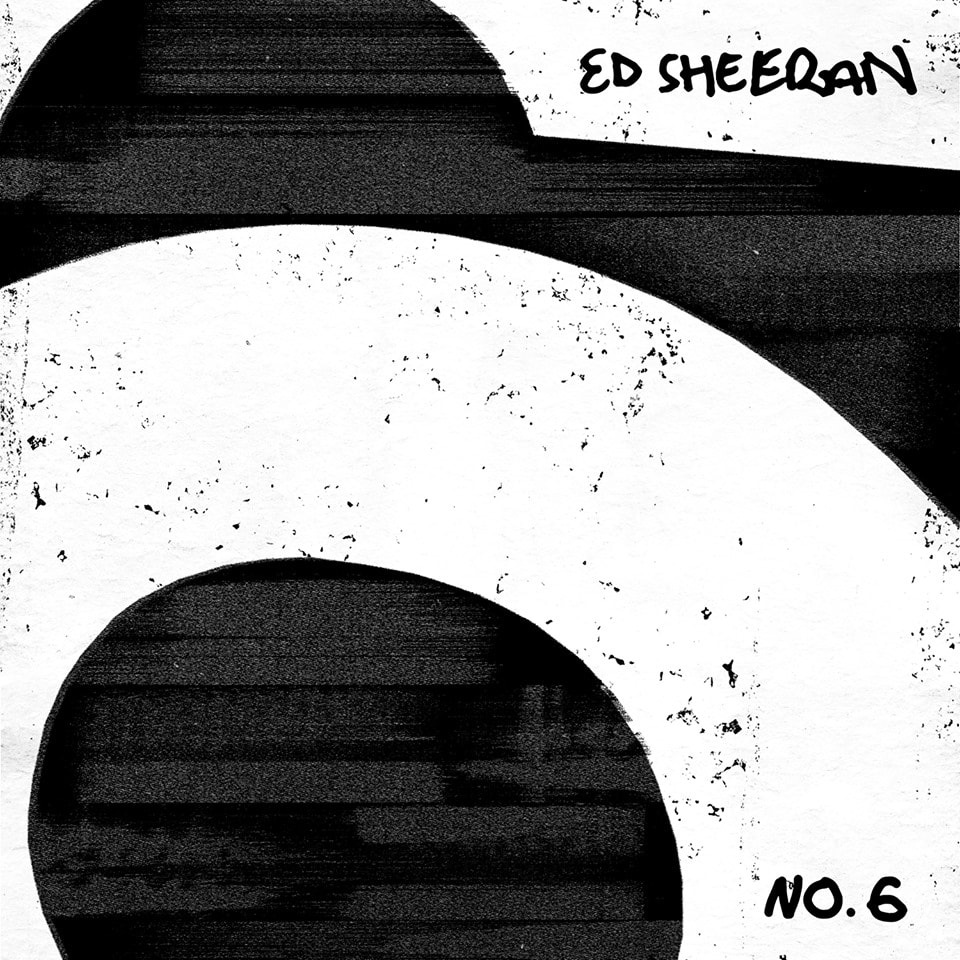
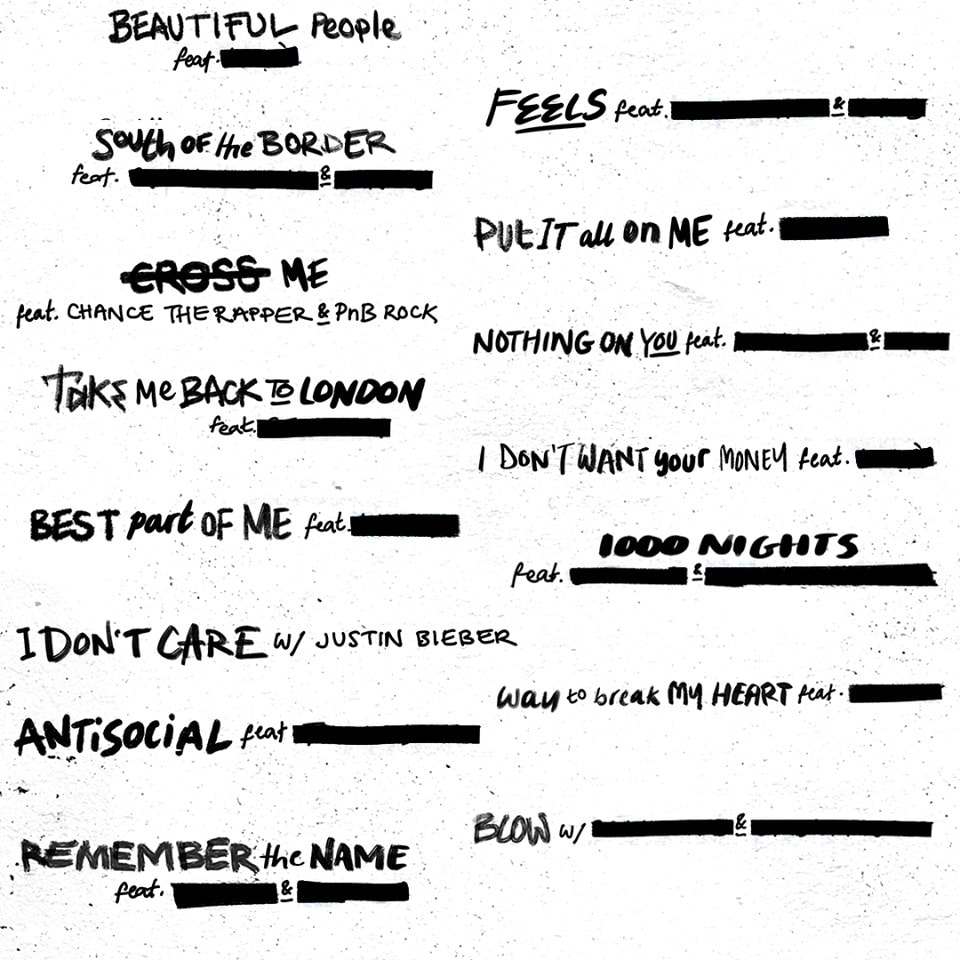
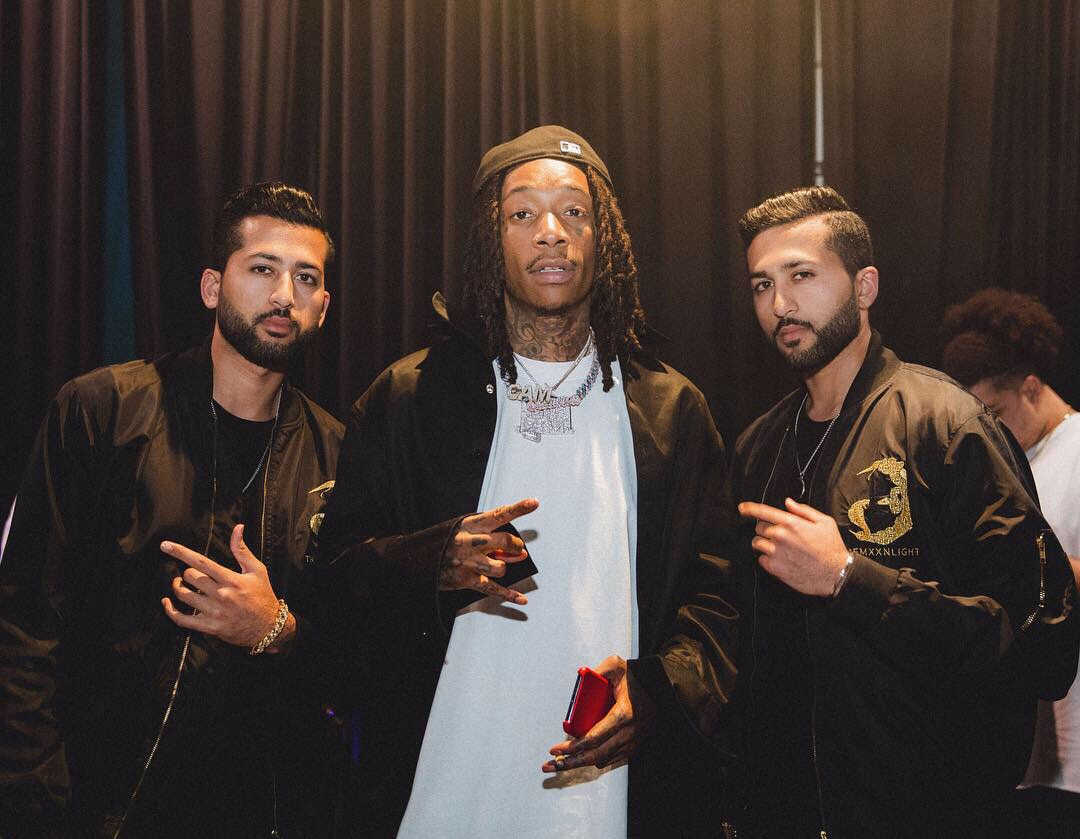
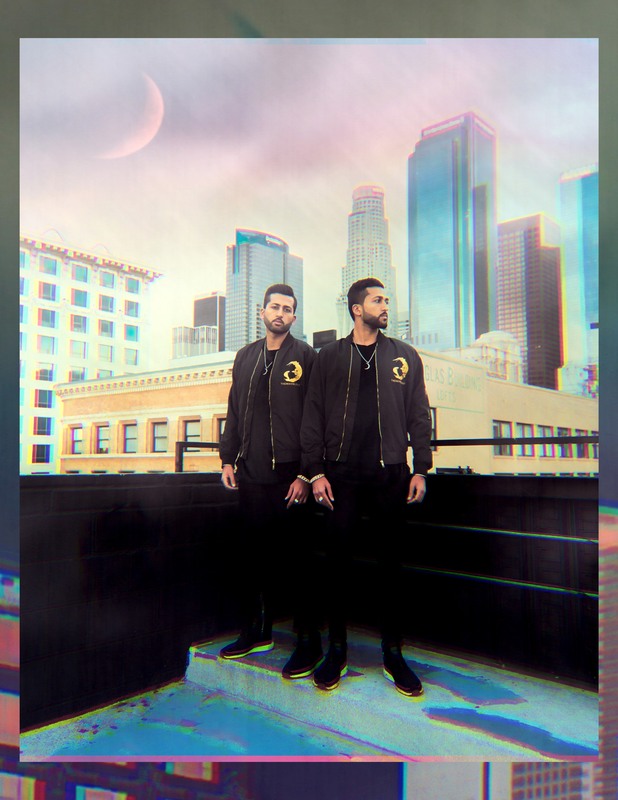
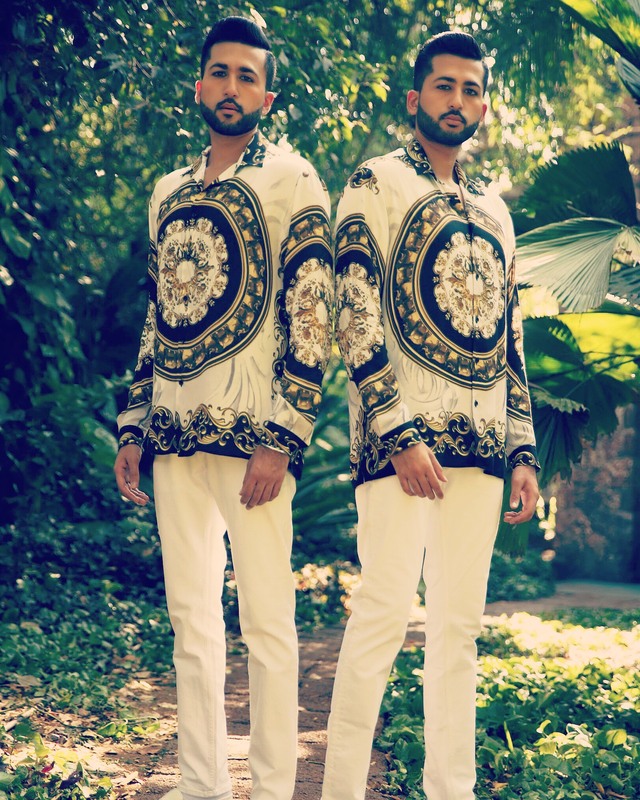
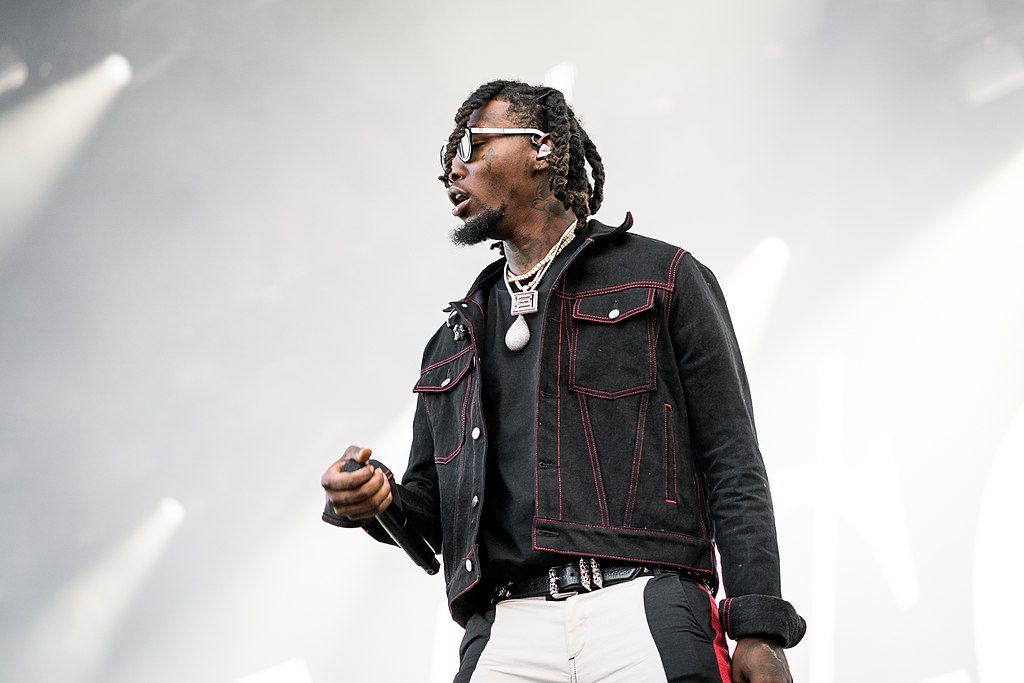

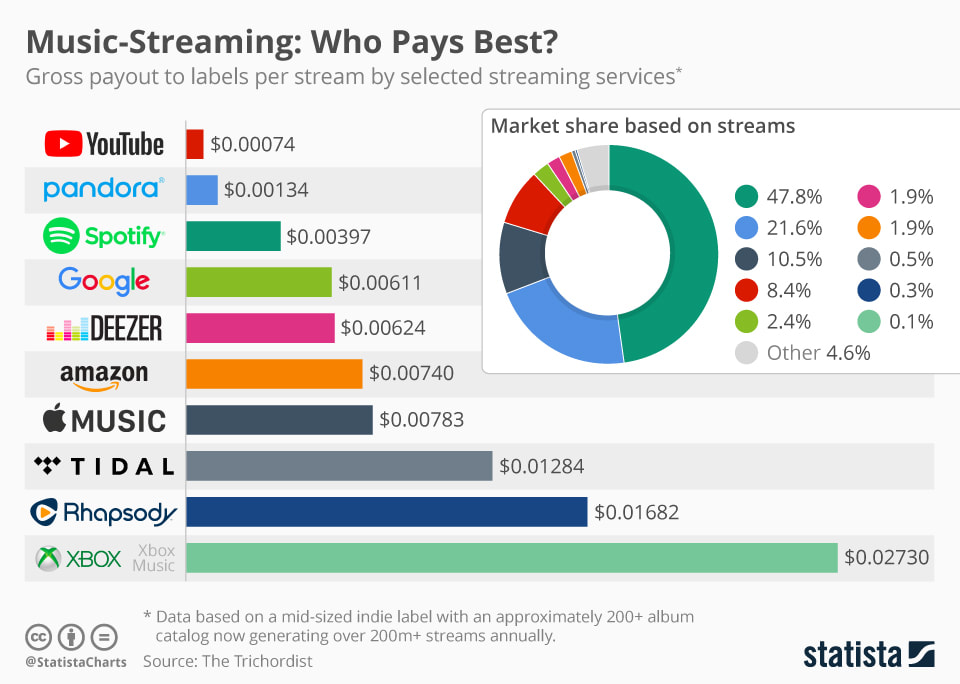
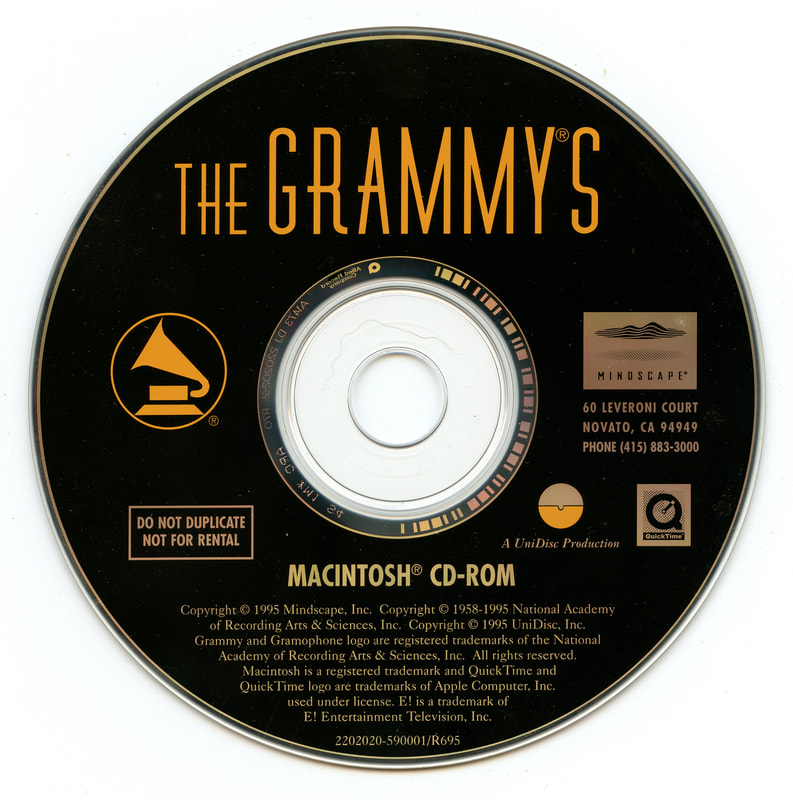
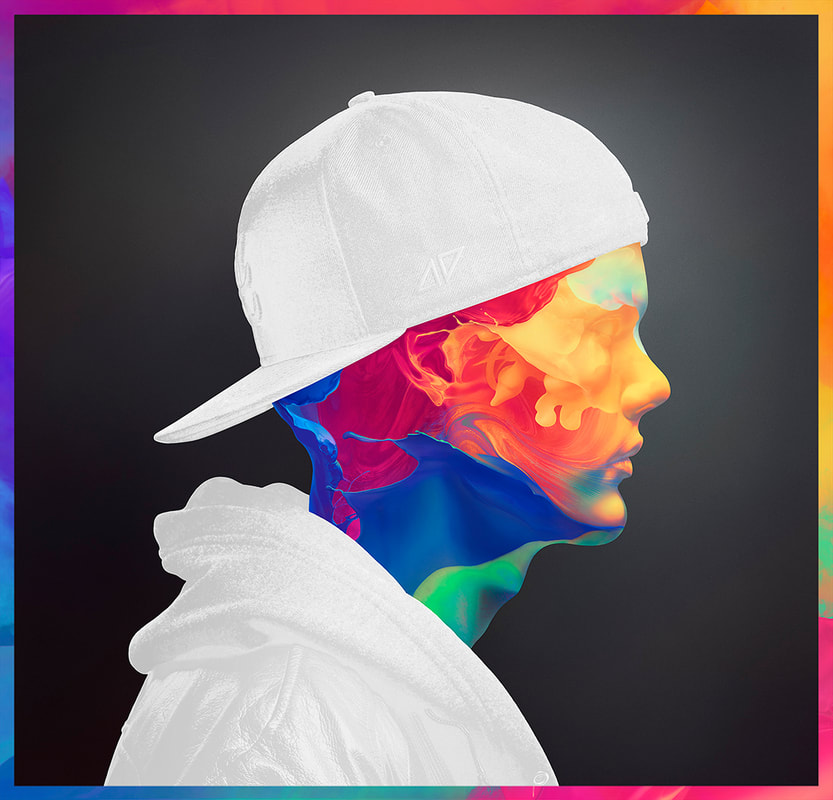
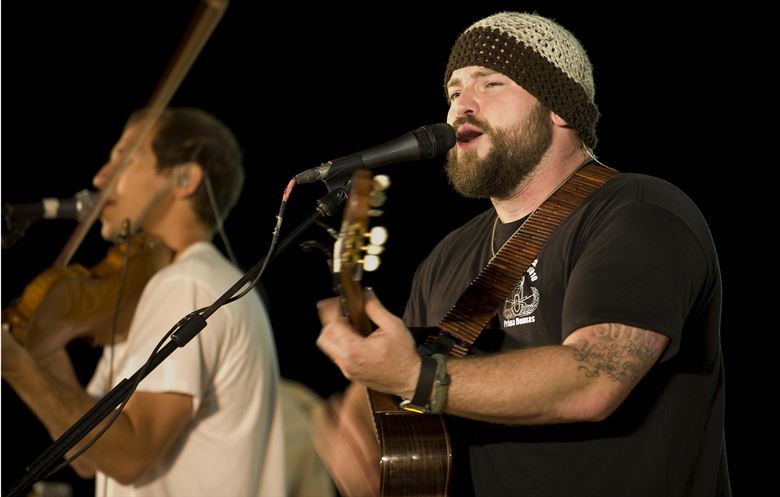
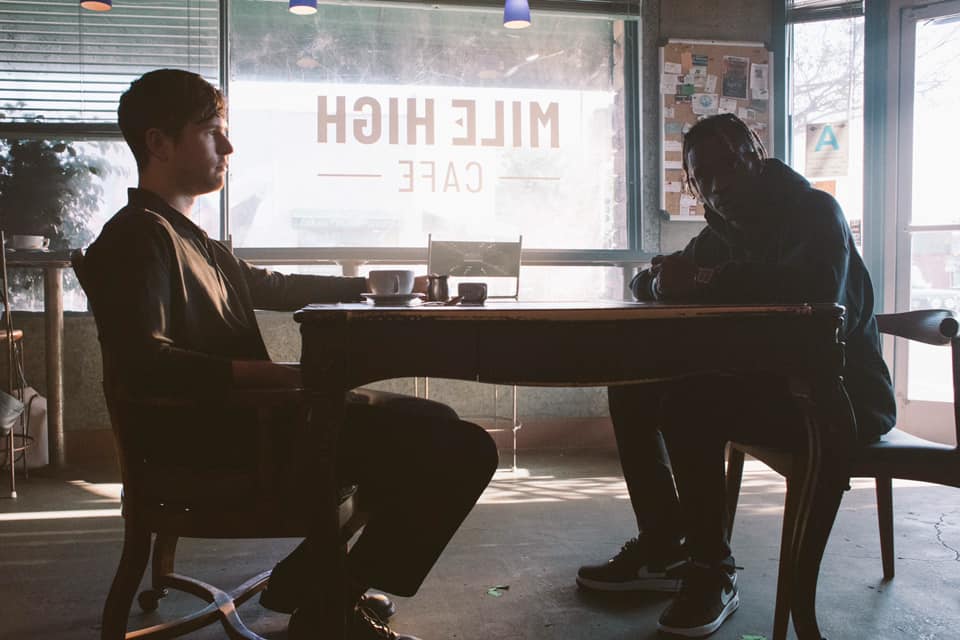
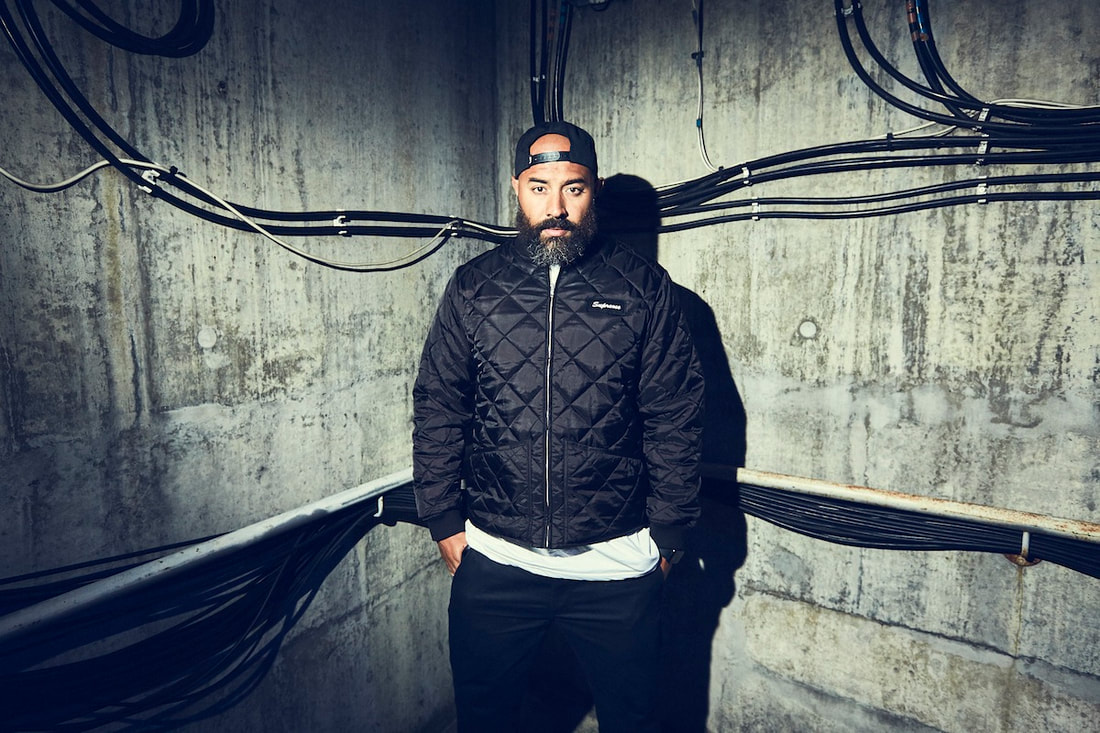
 RSS Feed
RSS Feed